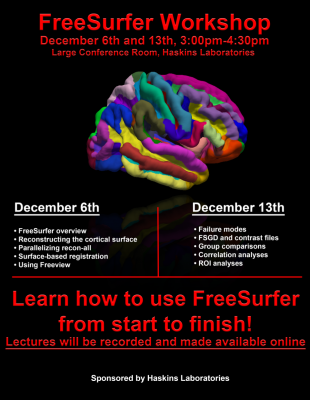Evelina Fedorenko, PhD
Assistant Professor
Harvard Medical School and Massachusetts General Hospital
Wednesday March 28, 2018
3:30-5:00pm, BOUS A106
The cognitive and neural architecture of the human language system
Evelina Fedorenko, PhD
Assistant Professor
Harvard Medical School and Massachusetts General Hospital
Wednesday March 28, 2018
3:30-5:00pm, BOUS A106
The cognitive and neural architecture of the human language system

KEYNOTE SPEAKER: John Gabrieli, Ph.D, Professor of Brain and Cognitive Sciences, MIT
The New England Research Group on Dyslexia is an interdisciplinary community of researchers, educators, clinicians, and policy experts, whose work aims at elucidating the biological, including psychological, and social underpinnings of Developmental Dyslexia and related disorders with the objective of improving prevention, early detection, diagnosis, treatment/intervention and social support (including legal, political, and public health) associated with this learning disability.
Registration is closed.
BIRC is pleased to present a series of informal BOLD Brownbag talks, held on Wednesdays from 9-10 AM in Bous 162. If you are not currently on the MRI distribution list, but would like to hear updates about these talks, please join the list serve. This venue is an informal one, geared toward discussion of work in progress (especially methodological/analytical) rather than formal polished presentations of finished products (though we’ll have some of those as well!).
After serving as Director since BIRC’s inception, Jay Rueckl will taking a well-earned sabbatical leave. Inge-Marie Eigsti will step in as Acting Director of BIRC. Dr. Eigsti’s imaging research centers on neural circuitry underlying the processing of language and special interests in autism spectrum disorder (see a recent article here).
The BIRC pleased to announce the appointment of Dr. Roeland Hancock as Associate Director of the Brain Imaging Research Center. Roeland received a PhD in Psychology from the University of Arizona. Since 2013, he has been a Postdoctoral Fellow at the University of California, San Francisco working with Fumiko Hoeft, an innovative leader in MRI research. Roeland has expertise in functional, structural and spectroscopic magnetic resonance imaging, as well software development, project management, and magneto/electroencephalography.
Roeland’s research interests concern the neurobiological factors underlying individual variability in language processing and the application of new mathematical and computational techniques to understanding these processes. His most recent work has focused on the effects of neurochemistry on the neural dynamics of speech and auditory processing.
Roeland’s appointment will begin on June 23.
Join the discussion and receive updates from the center by signing up for our Listserv! To subscribe, visit listserv.uconn.edu and locate the MRI_Center-L list.